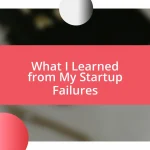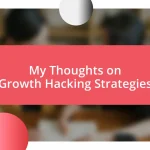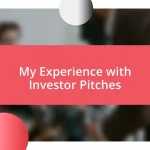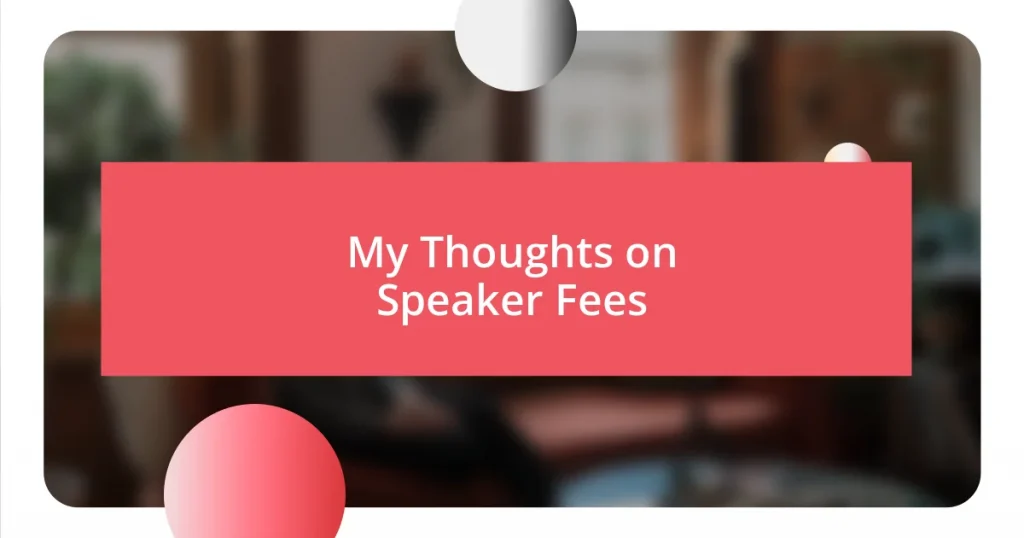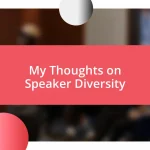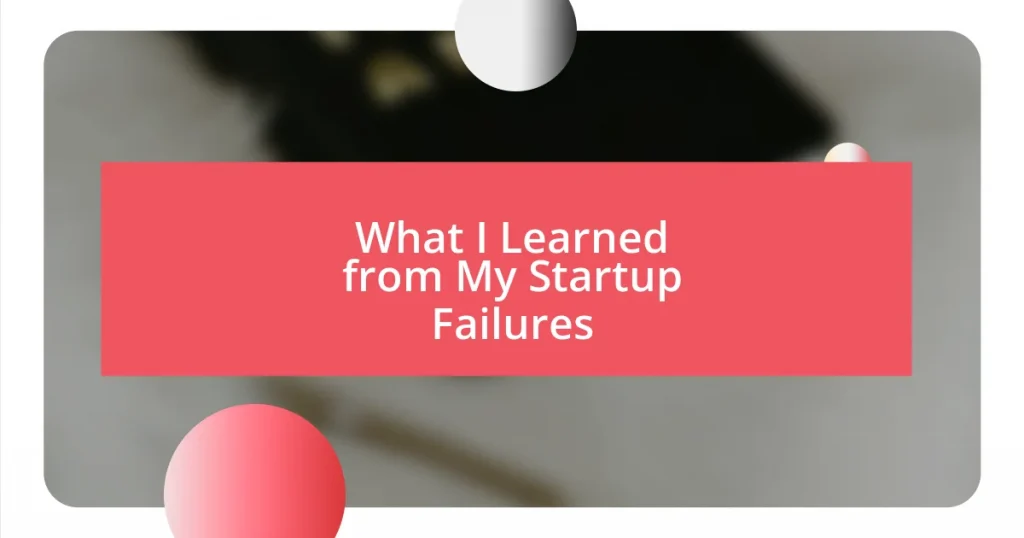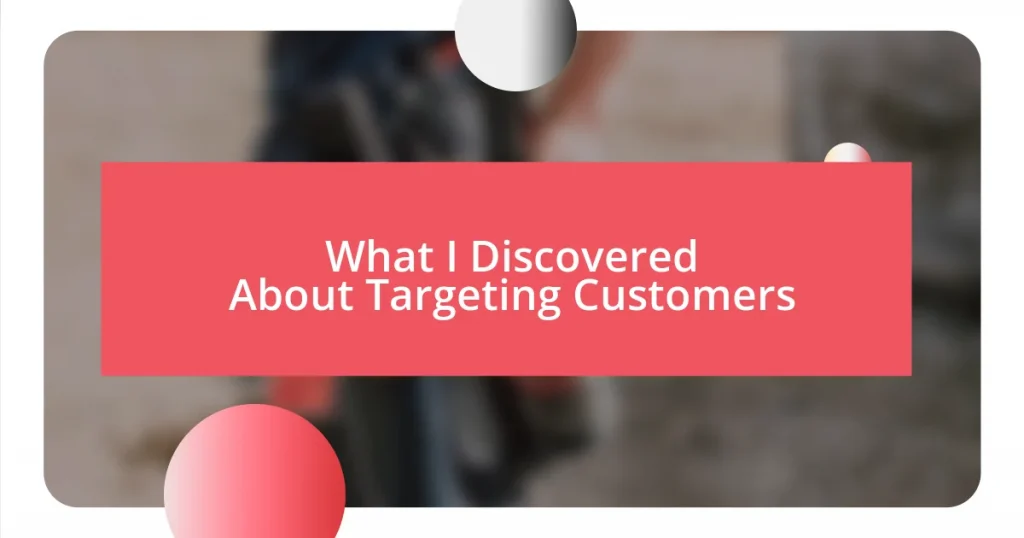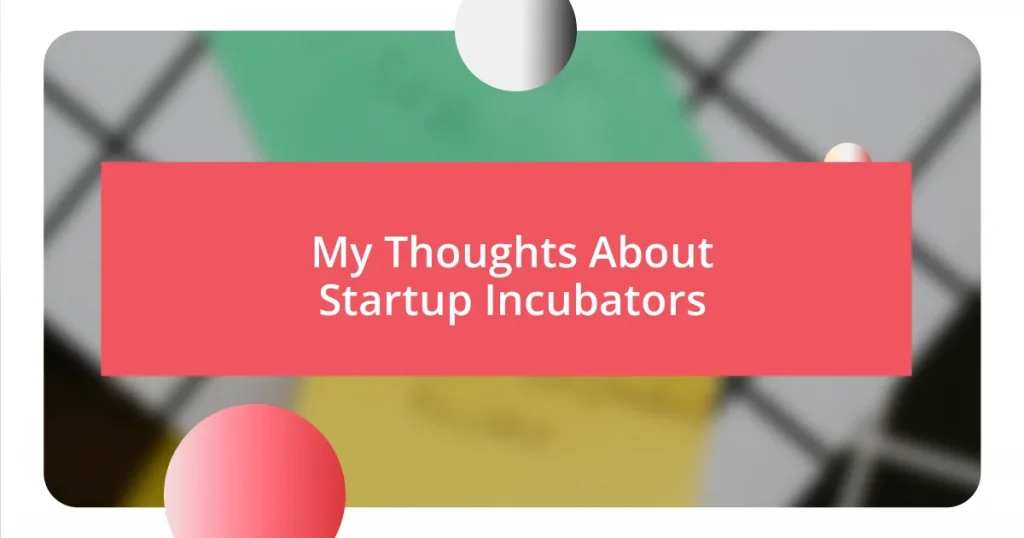Key takeaways:
- Speaker fees vary based on factors like experience, event type, audience size, and location, highlighting the complexity of pricing in the speaking industry.
- Maximizing value involves understanding one’s worth, researching industry standards, and effectively negotiating by discussing added value and potential outcomes.
- Common misconceptions include equating higher fees with better quality, believing fees are immutable, and assuming all fees are negotiable, emphasizing the need for flexibility and creativity in pricing strategies.
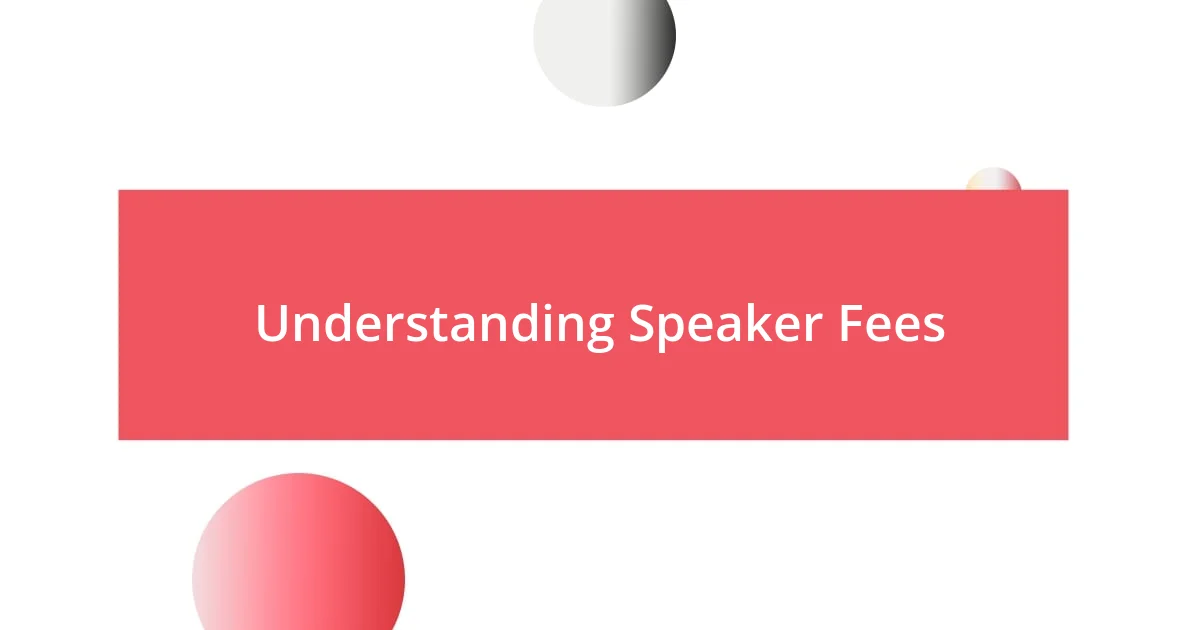
Understanding Speaker Fees
Understanding speaker fees involves recognizing that they can vary significantly based on factors like the speaker’s experience, expertise, and the event’s scale. I remember my first speaking engagement; I was nervous but excited, and I learned quickly that my fee didn’t just reflect my knowledge—it signified my ability to connect with the audience and deliver value. Isn’t it fascinating how worth can sometimes be more about the impact you make than just the credentials you hold?
Another important aspect is the context of the event. For instance, while preparing for a corporate event, I realized how different the expectations were compared to a community gathering. The stakes felt higher, and that added pressure compelled me to elevate my performance. Have you ever thought about how the audience’s expectations can shape not just your delivery but also your perceived value?
Lastly, it’s essential to consider the logistics involved in setting a speaker fee. Factors like travel, accommodation, and preparation time can heavily influence the overall cost. I recall calculating all these details for a national conference and realizing how much goes into my overall preparation. It made me appreciate the speakers who charge higher fees—there’s a lot more happening behind the scenes than most people see! What do you think is the most significant factor in determining a speaker’s fee?
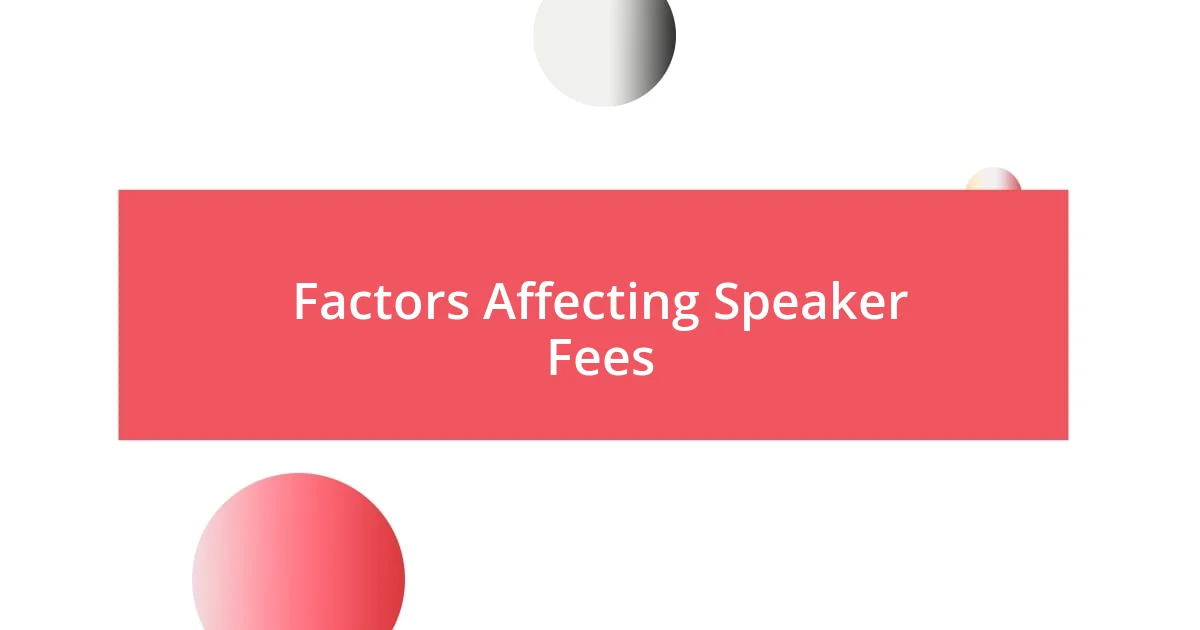
Factors Affecting Speaker Fees
One major factor influencing speaker fees is the speaker’s reputation and market demand. I once attended a seminar featuring a renowned expert whose fee was not only high but justified by their ability to draw a crowd. It was eye-opening to see how a speaker’s established credibility can set the fee bar higher; people are often willing to invest more if they believe the experience will be transformative.
Here are some key elements to consider regarding speaker fees:
- Experience: More seasoned speakers typically command higher fees due to their proven track record.
- Subject Matter Expertise: Specialists in niche topics can charge more for their in-depth knowledge.
- Event Type: Corporate events generally have larger budgets compared to local community gatherings.
- Audience Size: Larger audiences can lead to higher fees as the potential for impact increases.
- Location: Travel distance and location can add to the overall cost, influencing the fees accordingly.
Another critical aspect that impacts speaker fees is the event’s goals and objectives. I recall a time when I was approached to speak at a charity event, and while the fee was lower than what I might typically charge, the purpose behind it really resonated with me. That particular engagement felt incredibly rewarding, highlighting how sometimes the emotional weight of the event can shift the financial aspects significantly.
- Event Purpose: Nonprofits might have budget constraints that influence fees.
- Sponsorship Opportunities: Events with sponsorship might afford higher speaker fees.
- Timing and Urgency: Last-minute bookings might incur additional fees due to demand.
- Content Customization: Customized presentations can also raise fees as they require more preparation.
All these factors create a dynamic pricing landscape for speakers, showcasing just how complex the decision-making process can be.
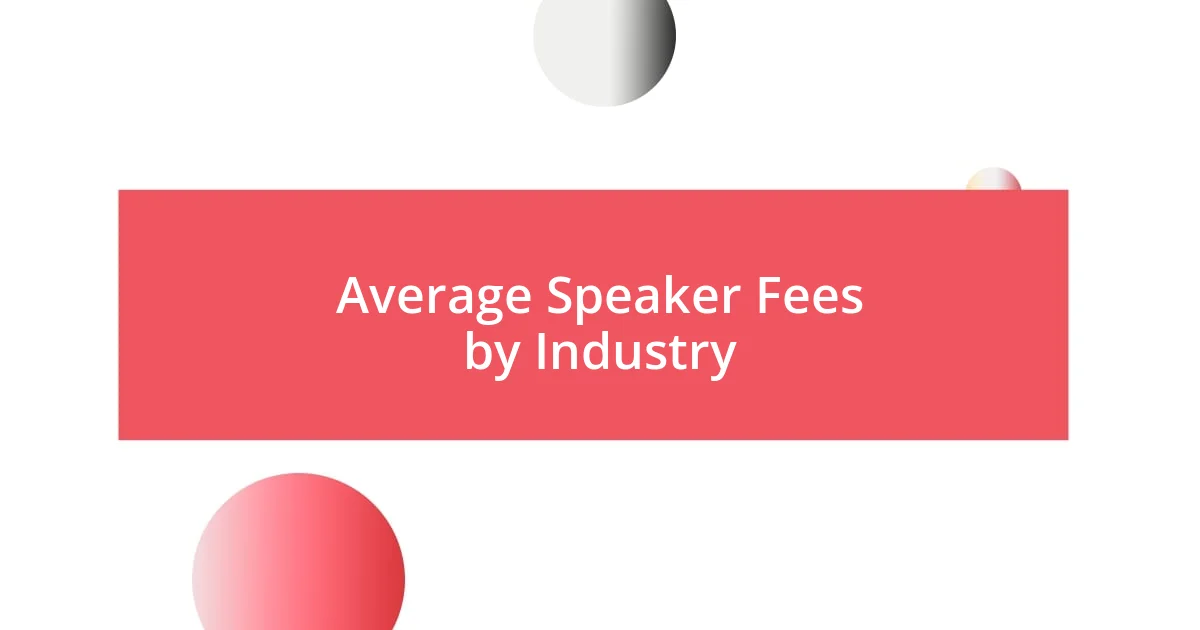
Average Speaker Fees by Industry
The average speaker fees can vary widely based on the industry, reflecting the unique demands and expectations within each sector. For instance, in the corporate world, I’ve seen fees range from $2,500 to $10,000 or more for experienced speakers. It’s often tied to the budget a company allocates for professional development, which can be quite substantial given the emphasis on impactful leadership learning.
In contrast, the nonprofit sector typically operates under tighter budget constraints. From my experience, fees here can range from $1,000 to $3,500, largely influenced by funding availability. I remember volunteering to speak at a local charity fundraising event, which charged less than my usual fee. Despite this, the genuine connections I made with the audience made it one of the most fulfilling engagements I’ve ever had.
It’s also interesting to note how the tech industry has its own unique pricing metrics. Fees can soar to $15,000 or above for industry leaders who can share cutting-edge insights. I was fortunate to participate in a tech conference where the speaker lineup drew significant crowds. The experience showed me how the promise of innovative ideas can drive speaker fees up, as attendees are willing to invest in knowledge that could transform their approach to technology.
| Industry | Average Speaker Fee |
|---|---|
| Corporate | $2,500 – $10,000+ |
| Nonprofit | $1,000 – $3,500 |
| Technology | $5,000 – $15,000+ |
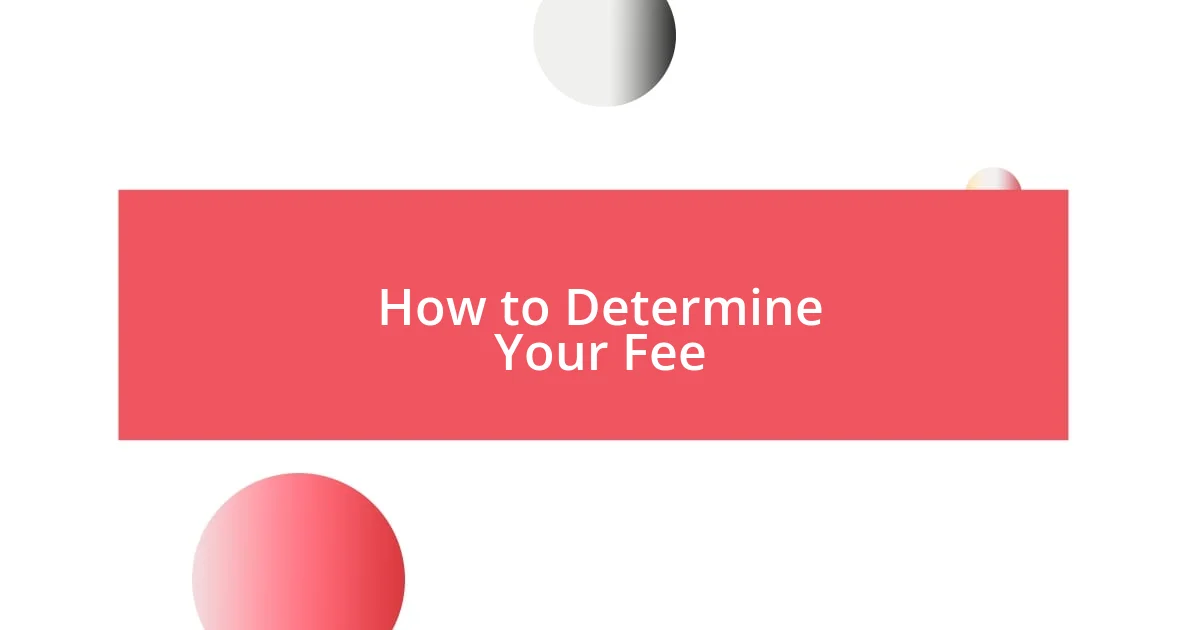
How to Determine Your Fee
Determining your speaker fee can feel daunting at times, but it really boils down to understanding your unique value. I vividly remember a negotiation where I hesitated to ask for what I was truly worth. Reflecting on my experience and preparation allowed me to confidently propose a fee that aligned with my expertise. The relief I felt when they accepted my fee showed me the importance of valuing oneself appropriately.
Another key aspect is research. I often find it helpful to look into what others in my niche are charging. One time, I was shocked to discover that a colleague with similar experience was charging nearly double my fee. This realization pushed me to reassess not only my pricing strategy but also my offering. Have you ever had a moment where you felt undervalued? I believe it’s essential to take those moments and turn them into opportunities for growth.
Finally, consider the context of the event. I was invited to speak at a high-profile summit that promised exposure to industry leaders. Although the fee was less than I initially intended to charge, I recognized that the potential networking benefits could lead to even greater opportunities down the line. It’s all about weighing immediate financial gain against long-term potential—what would you choose in a similar situation?
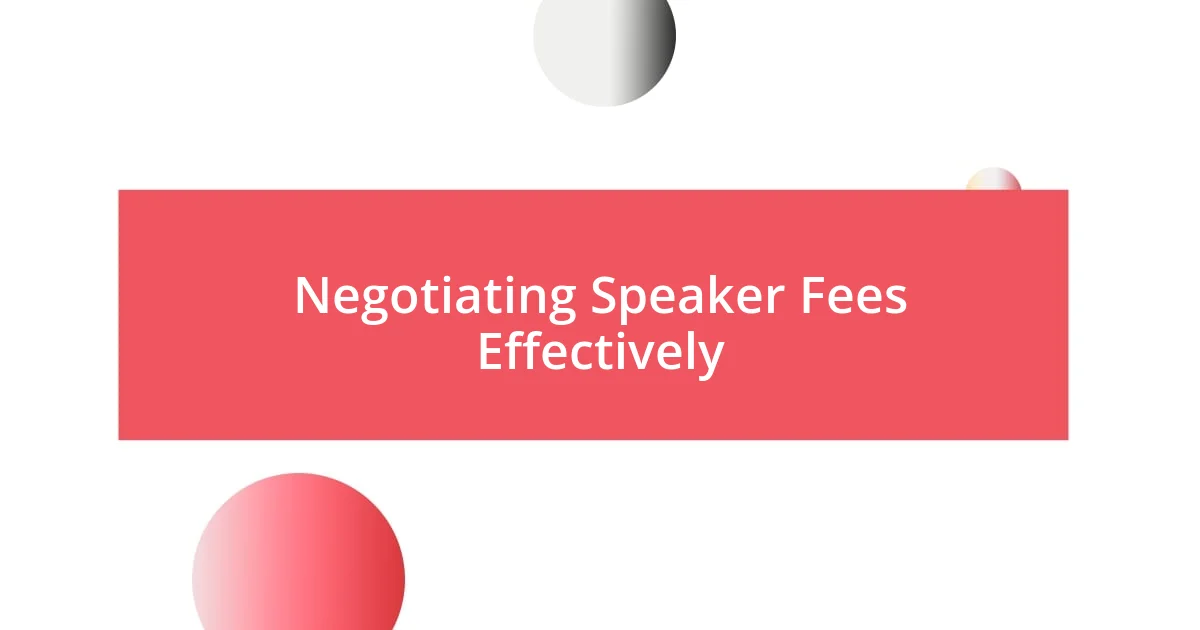
Negotiating Speaker Fees Effectively
When it comes to negotiating speaker fees, preparation is key. I recall a time when I walked into a negotiation feeling unprepared. However, once I gathered insights about the event’s budget and the value I brought to the table, my confidence surged. Have you ever felt that shift from uncertain to empowered? It can make a world of difference in discussions.
Being transparent about your fees can also enhance the negotiation experience. There was an instance where I decided to share my fee openly during a preliminary conversation with an event organizer. Surprisingly, this transparency led to a more collaborative dialogue. I think it dismantled tensions and allowed us to focus on what I could deliver rather than merely the dollar amount. Have you tried similar tactics?
Lastly, don’t shy away from discussing added value. I remember referencing the extra resources I provided after speaking—like follow-up materials and post-event Q&A sessions. This little detail often sways negotiations in your favor, as it highlights that you offer more than just a one-time talk. How can you enhance your value proposition the next time you negotiate?
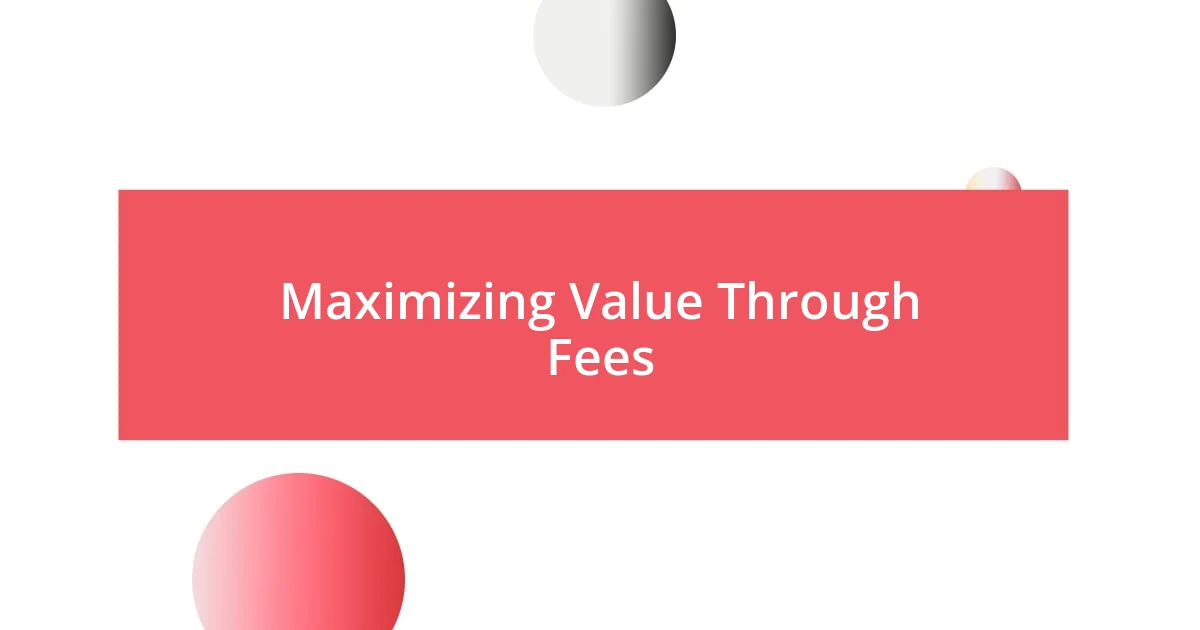
Maximizing Value Through Fees
Maximizing value through fees often requires a shift in mindset. I remember a particular event where my fee felt high, but I knew the audience’s potential for impact was immense. As I stood on stage, I felt the energy in the room; the feedback afterward reinforced that the high fee was justified. Have you ever charged more and felt the value radiate right back at you?
Another strategy I’ve found invaluable involves tying your fee to specific outcomes. For instance, I recently spoke at a corporate event focused on innovation. I structured my fee around how my talk could stimulate new ideas and boost team motivation, which ultimately positioned me as a strategic partner rather than just a speaker. Isn’t it powerful when you can frame your value in terms of direct benefits?
It’s also essential to acknowledge the emotional aspect of pricing. I once hesitated to raise my fee for a repeat client I adored. However, when I communicated my new rate, they appreciated my growth and the value I continuously brought to their events. It hit me then; sometimes, it’s not just about the amount—it’s about recognizing and celebrating our journey as experts. Have you had a similar revelation in your own work?
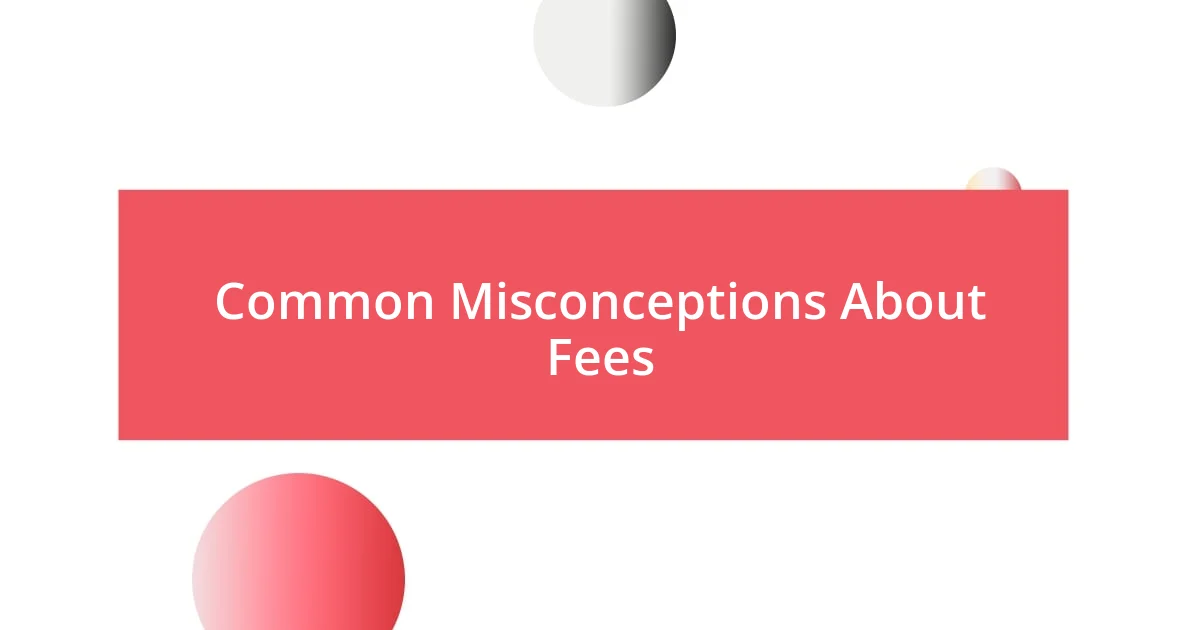
Common Misconceptions About Fees
One common misconception I often encounter is that higher speaker fees mean better quality. I’ve seen emerging talents with lower fees deliver presentations that blow seasoned speakers out of the water. How often do we equate cost with excellence, only to be surprised by those who defy the stereotype? In my experience, it’s about the connection you create with your audience, not just the price tag attached to your name.
Another myth that seems pervasive is the belief that once you set a fee, it’s set in stone. I once felt trapped by my own pricing structure, hesitant to adapt as my experience grew. However, I’ve learned that flexibility can invite exciting opportunities. Have you ever re-evaluated your worth and adjusted your fees accordingly? This adaptation not only reflects your journey but also allows you to factor in the unique value you bring to each event.
Some people also assume that all fees are negotiable, which isn’t always the case. I remember a specific instance when I faced a hard limit on a budget, and the event organizer simply couldn’t accommodate my standard rate. Instead of using a blunt approach, I proposed a tailored package that still honored my worth without compromising their budget. This experience taught me that honesty and creativity often pave the way for fruitful negotiations, even when a hard no seems imminent. Have you tried thinking outside the box in negotiations?
